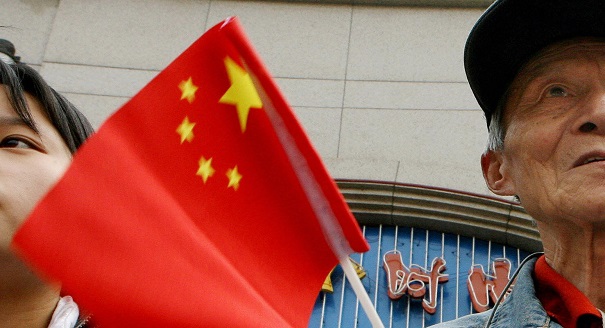Japan’s Prime Minister Shinzo Abe has been hyperactive in his “Eurasian diplomacy.” Since his coming to power late last year, he visited Vietnam, Thailand, Indonesia, Mongolia, Russia, Saudi Arabia, the UAE, Turkey, and Myanmar. This month, he plans to visit Poland to attend the first summit of the Visegrad Four Countries (Poland, the Czech Republic, Slovakia, and Hungary) and Japan. In Tokyo he has received many leaders from Eurasia, including from the Czech Republic, Slovenia, Sri Lanka, Latvia, Kyrgyzstan, Singapore, Thailand, and India, as well as from NATO.
Apparently he avoids directly engaging in diplomacy toward China before the Upper House election in July, because any move with regard to the Senkaku Islands issue may arouse negative repercussions either in Japan or in China. Yet this creates an impression as if he were building a cordon sanitaire around China.
The real motives of his policy may have to do with a combination of political and economic calculations: enhancement of Japan’s political status and promotion of Japan’s involvement in construction of infrastructure and nuclear power plants in Visegrad countries. Indeed, Japan’s “yen loans” (low-interest and long term official credit) have been playing a substantial role in infrastructure building in South Korea, China, South-East Asian nations, India, Pakistan, and Central Asia, which also contributed to political stability in the region. Even the surge of the Chinese economy in 1990s was ushered by the huge inflow of money and technologies from the West including Japan; Japan provided China with about a $50 bln dollar official loan and a similar amount of direct investment.
The “Chinese money” fever now sways the entire Eurasia, including Central Asia, the Baltic countries, East Europe, and even Russia. The Chinese themselves seem to have euphoria over their newly acquired magic wand, the money. But both Eurasian countries and the Chinese may soon realize the limits of the spell. The rapid economic growth of China is now coming to a halt, as its excessive dependence on export and infrastructure building will finally face constraints. Besides, the larger part of its economy is in the hands of state enterprises, which are not intent on efficiency and thus are not suited for a self-sustained development.
The countries in Eurasia will eventually realize that the ultimate beneficiaries of the Chinese soft loans are not them, but the Chinese construction companies, the Chinese workers, and the Chinese manufacturers. The Chinese tradesmen may develop an intricate network of illegal banking system of their own, impairing indigenous tax and banking systems. Surely, China can be a powerful political partner, for example, in the UN Security Council, but only few countries in Eurasia need her services.
The dynasties of the Han Chinese never made inroad into the regions beyond the Fergana Valley, and today’s China seemingly does not possess a coherent strategy in her westward foray. But her intense economic presence in Tajikistan and Kyrgyzstan may someday cause a collision of political interests between Russia and China. Likewise, not only in Central Asia but also in the South Caucasus, Russia will be increasingly exposed to cryptic balance games with China, the EU, the United States, and many others.
Japan is not poised to engage in a life-or-death competition with China in Eurasia. It will not tie up with Russia against China’s growing might, either. Japan will pursue its own political and economic interest in Eurasia with modesty, but its efforts will provide a limited but fairly substantial neutralizing effect to the Chinese sway across Eurasia. And there are many similar forces on the continent, such as Turkey and South Korea. In the case of Russia, an excessive fixation on China may be misleading for the Russian strategy.
